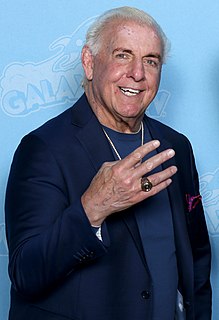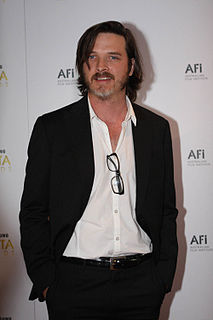A Quote by Maya Angelou
I thought if war did not include killing, I'd like to see one every year.
Related Quotes
I thought Chris Benoit was worthy of being a Horseman. I thought Dean Melinko was. Obviously I thought Steven Michael was, though obviously he was inexperienced, I thought he was a perfect fit as a horseman. I did not like the Paul Roma deal. I did not like Sid Vicious or about two or three guys that they put in there, I just couldn?t see it. I couldn?t stomach it, but I had to.
War is not violence and killing, pure and simple; war is controlled violence, for a purpose. The purpose of war is to support your government's decisions by force. The purpose is never to kill the enemy just to be killing him but to make him do what you want him to do. Not killing... but controlled and purposeful violence.
We sit at our consoles and play "Gears of War", but we don't see images from war. We don't turn on the news and see the evidence of war, the result of war. Maybe twice a year, Memorial Day, Veterans Day, we'll go out, we'll hang our flags, we'll try to inculcate in our children some sense of national honor for the fallen. But really, we don't see it. We just don't see the pictures. There's no drive-by on the freeway of death up close. So we don't really see bravery.
This for many people is what is most offensive about hunting—to some, disgusting: that it encourages, or allows, us not only to kill but to take a certain pleasure in killing. It's not as though the rest of us don't countenance the killing of tens of millions of animals every year. Yet for some reason we feel more comfortable with the mechanical killing practiced, out of view and without emotion by industrial agriculture.
I myself don't have Netflix. And recently, I was staying at a friend's place who did, and I was feeling rather poorly one morning, and I sat down and watched the entire series of 'The Killing,' the American version of 'The Killing' in one day. I just got hooked. I thought, 'Wow, I've never done this before.'
When I went to Afghanistan in 2003, I walked into a war zone. Entire neighborhoods had been demolished. There were an overwhelming number of widows and orphans and people who had been physically and emotionally damaged; every 10-year-old kid on the street knew how to dismantle a Kalashnikov in under a minute. I would flip through math textbooks intended for third grade, fourth grade, and they would include word problems such as, "If you have 100 grenades and 20 mujahideen, how many grenades per mujahideen do you get?" War has infiltrated every facet of life.
It has to be an actress like Marion Cotillard [in Allied] because there are so many levels to it. It's set in the Second World War, when lots of people were doing things that, outside of a war, you wouldn't do, like killing and dropping bombs. She's doing things that one wouldn't approve of, but it's war.
It is said about Lord Buddha sadaya-hrdaya darsita-pasu-ghatam. He saw the whole human race going to hell by this animal killing. So he appeared to teach ahimsa, nonviolence, being compassionate on the animals and human beings. In the Christian religion also, it is clearly stated, 'Thou shall not kill'. So everywhere animal killing is restricted. In no religion the unnecessary killing of animals is allowed. But nobody is caring. The killing process is increasing, and so are the reactions. Every ten years you will find a war. These are the reactions.
I did not know much history when I became a bombardier in the U.S. Air Force in World War II. Only after the War did I see that we, like the Nazis, had committed atrocities... Hiroshima, Nagasaki, Dresden, my own bombing missions. And when I studied history after the War, I learned from reading on my own, not from my university classes, about the history of U.S. expansion and imperialism.







































